
On the afternoon of November 4, the Academy of Finance organized a scientific conference with the theme: "Artificial Intelligence (AI) in teaching and learning foreign languages".
Speaking at the opening of the workshop, Associate Professor, Dr. Nguyen Manh Thieu, Deputy Director of the Academy of Finance, affirmed that artificial intelligence (AI), with its ability to process natural language, analyze big data and support decision-making, is gradually becoming a strategic tool in innovating teaching and learning methods, especially in the field of foreign language teaching.
In that context, the workshop held today is also a step to implement Resolution No. 71-NQ/TW on innovation in higher education and digital transformation in education, demonstrating the determination of the Academy of Finance to become a pioneer in applying AI in teaching foreign languages and developing digital capacity for learners.
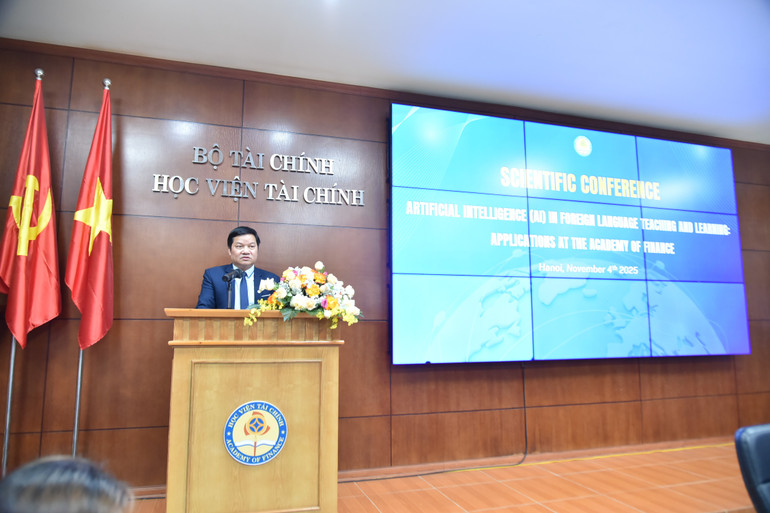
AI changes foreign language learners and teachers
According to a research paper by lecturers of the Faculty of Foreign Languages, Academy of Finance on Coze - an AI chatbot development platform applied in learning English for specialized purposes, Coze AI Chatbot has played a useful role in supporting students in learning specialized English and has a clear improvement in students' test scores.
Dr. Pham Thi Tam, Deputy Head of the Faculty of Foreign Languages, Academy of Finance, affirmed that applying AI to foreign language teaching helps lecturers and learners exploit the full potential of technology: from lesson design, assessment, to automatic feedback and personalized learning.
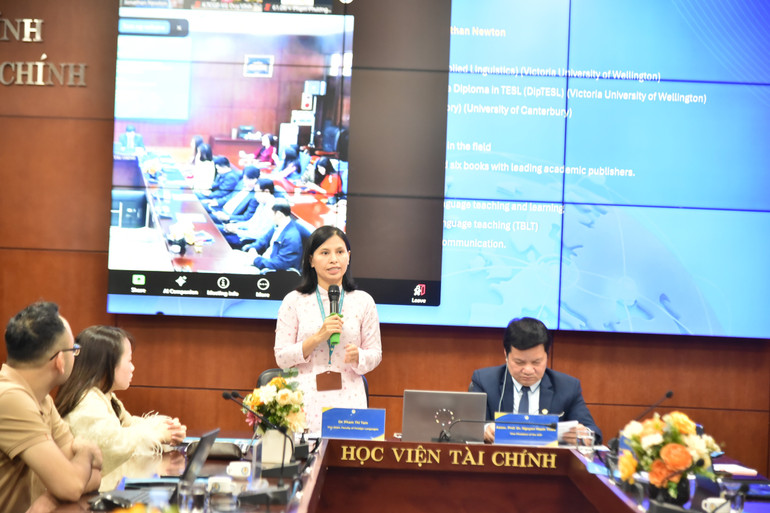
Speakers such as Master Hoang Huu Son, Doctor Luong Quynh Huong, lecturers of the Academy of Finance; Master Vu Thanh Loan,FPT University, assessed that AI tools such as language assistants, automatic scoring systems, smart learning platforms or virtual dialogue models are contributing to creating a flexible, creative and highly interactive learning environment, helping learners practice practical language skills, while developing digital capacity - a core factor in the integration period.
However, it is undeniable that AI is creeping into students' learning process, bringing potential risks and challenges.
Further demonstrating this issue, Associate Professor Jonathan Newton, School of Languages and Applied Linguistics, Victoria University of Wellington, USA, mentioned the change in language teaching in the era of artificial intelligence, especially in writing skills. According to him, factors that can be easily supported by tools like Grammarly, for example, grammar and vocabulary will no longer be the focus, instead, teachers will focus more on content and communication skills.
Conference attendees argued that students could become too reliant on AI tools, and not have deeper learning strategies.
Ethical issues in learning and teaching when using AI were also frankly shared by speakers. It is necessary to avoid using AI to cheat in learning and ensure that the application of AI is consistent with the principles of fairness, respect for privacy and responsible use.
Comprehensive and collaborative approach to using AI in education
In a quick note from a reporter from Nhan Dan Newspaper, in response to a question about the use of technology in learning foreign languages, students from the Academy of Finance all confirmed using tools such as ChatGPT, Gemini, DeepSeek...
At the discussion session on applying AI to foreign language teaching at universities, Dr. Pham Duc Thuan, Hoa Lu University, Ninh Binh province, expressed his support for the use of AI in learning, but it must come with some limitations and regulations.
Master Tran Thi Thu Nga, Doctor Nguyen Thi Thuy Linh, Academy of Finance, said that in the context of strong development of AI technology, bringing education, including English teaching, into a new transition period, it is necessary to recognize the importance of building clear policies, rules and regulations at the university level to guide the use of AI in teaching and learning. This helps both teachers and students clearly understand the expectations and limitations in integrating AI.
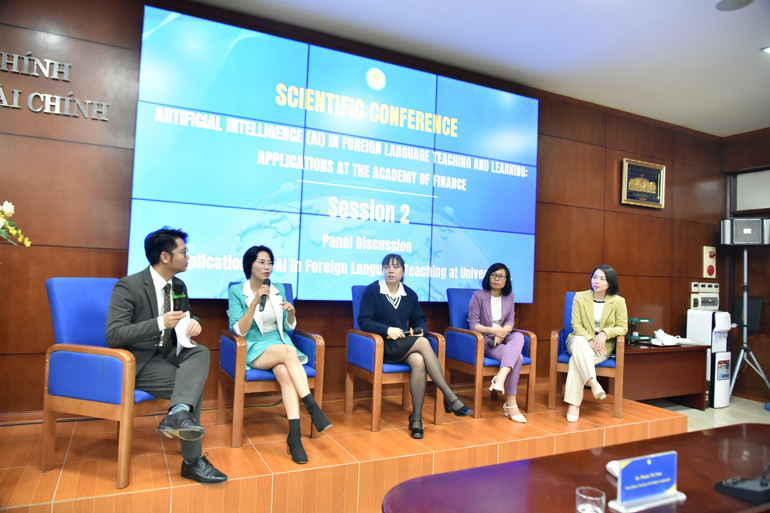
Accordingly, the effective and ethical integration of AI in education, especially in language teaching, requires a multi-faceted approach.
Dr. Nguyen Thi Viet Nga, Master Do Thi Hoa, Academy of Finance said that AI is becoming more and more popular in daily life, even creating a feeling of “addiction” to these tools. Some students are afraid of being “left behind” if they do not use AI.
Therefore, the speakers proposed to develop clear policies and regulations at the educational institution level to guide the use of AI; provide comprehensive and continuous professional development programs for teachers, focusing on digital competencies, AI understanding and application ethics; ensure transparency and carefully consider ethical aspects when introducing AI into teaching and innovate foreign language teaching programs and methods towards personalization and improving the quality of foreign language teaching in the context of digital transformation.
Source: https://nhandan.vn/ung-dung-ai-trong-day-va-hoc-ngoai-ngu-can-chinh-sach-ro-rang-post920608.html


![[Photo] Opening of the 14th Conference of the 13th Party Central Committee](https://vphoto.vietnam.vn/thumb/1200x675/vietnam/resource/IMAGE/2025/11/05/1762310995216_a5-bnd-5742-5255-jpg.webp)







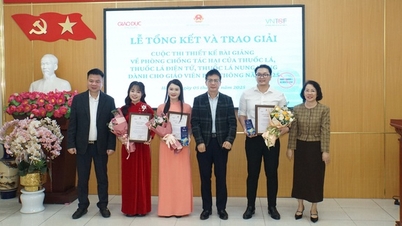

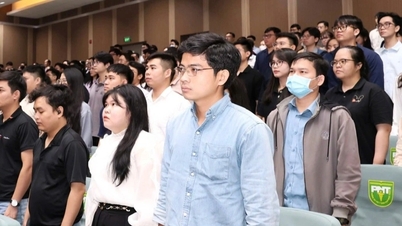















![[Photo] Panorama of the Patriotic Emulation Congress of Nhan Dan Newspaper for the period 2025-2030](https://vphoto.vietnam.vn/thumb/1200x675/vietnam/resource/IMAGE/2025/11/04/1762252775462_ndo_br_dhthiduayeuncbaond-6125-jpg.webp)













































































Comment (0)